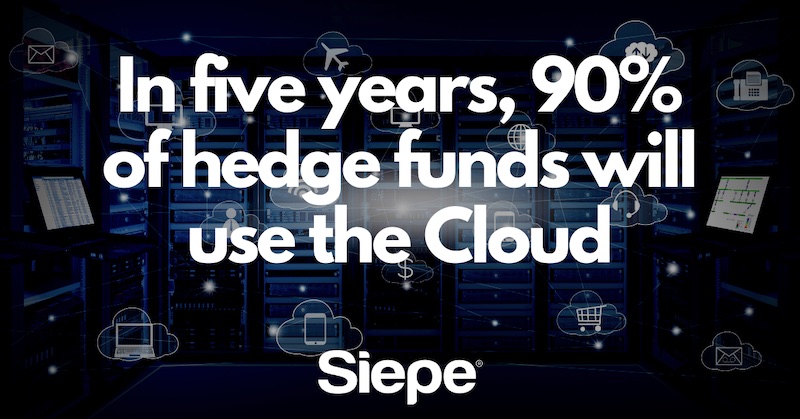In the midst of market turmoil, implementing your business’s IT infrastructure on the public cloud is no longer a preference, it is a necessity. As the novel COVID-19 outbreak continues to impact industries and global financial markets, it is clear who firms are turning to for support — technology providers.
When it comes to the investment management industry, preparing for systemic risk is crucial for a fund’s survival. We’ve seen first-hand the consequences of a major global crisis like the coronavirus pandemic, where in a matter of weeks, businesses were forced to adapt to a work-from-home environment. While some were unprepared, others have already embraced the benefits of modern technology, particularly those that have implemented a cloud-based infrastructure or work with a technology vendor for their IT and software needs as part of their business continuity plan (BCP).
So, was a global crisis the catalyst for change or is the shift to cloud-based solutions inevitable?
The Use Of Public Cloud: History Repeats Itself
Historically, third-party technology providers were met with skepticism around the use of public cloud as security concerns were top of mind. How do you adopt something that is not tangible? But as the investment landscape evolved and regulatory requirements became more complex, asset managers had little choice but to adapt. As such, technology providers are spending less time selling the public cloud, and more on addressing business needs. With a myriad of public cloud solutions available, however, it is vital that hedge funds work with experienced technology providers to develop a robust cloud roadmap, tailored to address the firms’ specific business problems.
When asset managers are better able to leverage their data as an asset and understand the drivers of fund performance, they can focus on generating alpha and driving bottom-line growth for their customers, while at the same time managing costs to address increased margin pressure. It boils down to how you derive value from data. By outsourcing technology needs, firms are enabled to make more informed decisions.
With that said, we are still a long way from a full shift to cloud-based IT infrastructures in the asset management industry. However, while only a fraction of the change, the recent coronavirus pandemic could be a stepping stone for accelerated adoption.
Global Crisis And Your Next BCP
Endowments and major banks have increasingly adopted Microsoft’s Office 365 or are running on private cloud infrastructures in addition to Office 365 for specific needs. People are starting to see the value of the flexibility and agility of the public cloud, especially in crisis scenarios. However, in terms of the adoption rate, we’re only in the third inning out of nine.
Whether large or small, hedge funds were severely disrupted during the coronavirus outbreak as employees were forced to work from home. With little to no preparation, firms scrambled to order laptops for their clients but were challenged with high demand and low supply. In addition to this, it was too little, too late to set up remote hardware and ensure security. As a result, hedge funds are likely to reevaluate their current solutions and prepare for future crises by outsourcing their technology needs.
The net result of the crisis is a more mobile workforce, where people will be more equipped to work from home using encrypted business laptops and operate on the public cloud as opposed to relying on data recovery centers that are more costly and time-consuming.
The Future Is In Multi-Cloud
While the public cloud carries many benefits, the future of the industry is shifting towards a multi-cloud environment. We’re going to see a mix of multiple public cloud (Amazon Web Services and Azure) providers working together to resolve businesses’ needs. The bottom line is businesses are not going to see value in having private data centers. This is also important from a regulatory perspective, as firms will not benefit from relying solely on one provider.
For hedge funds, it’s a no brainer. In five years, more than 90% of their technology needs will be outsourced. As the industry continues to evolve and regulatory pressures increase, cloud-based solutions will be the inevitable foundation of hedge funds’ infrastructures. Outsourcing to third-party providers will allow firms to mitigate operational risk, optimize efficiency, and produce actionable insights.
The only remaining question is, how firms migrate to this relatively new paradigm. As in any significant shift in operating model, it will require trusted partners, ones that really understand their business, because ultimately the move to cloud is not a technology choice, it’s a business decision.
This article was originally featured on ValueWalk
To read more Insights by Siepe, follow us on LinkedIn.

